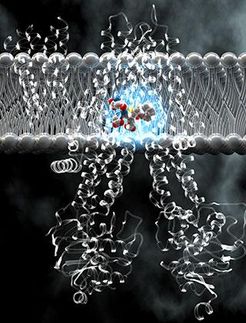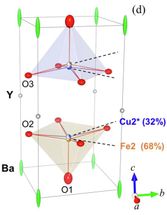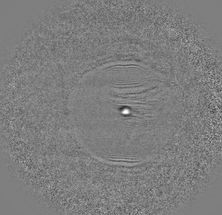Detecting early onset of metastatic disease using FAST disc
The key finding of this study is the development of a new technique that seperates circulating tumor cells (CTCs) from whole blood at a liquid-liquid interface.
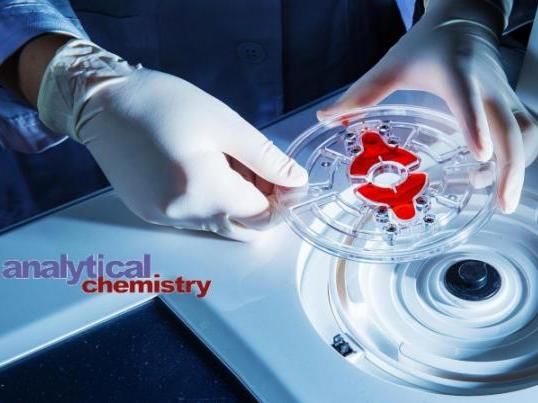
The FAST Disc, developed by Professor Yoon-Kyoung Cho (School of Life Sciences)'s research team can can accurately identify circulating tumor cells (CTCs) in the bloodstream.
UNIST
In the study, UNIST Professor Yoon-Kyoung Cho, one of the group leaders at IBS Research Center for Soft and Living Matter (CSLM), reported a technique to capture 95% of CTCs in the blood within one minute using a stand-alone lab-on-a-disc system equipped with Fluid Assisted Separation Technology (FAST). In this work, inspired by antifouling membranes with liquid-filled pores in nature, clog-free, highly sensitive, selective, rapid, and label-free isolation of viable CTCs from whole blood without prior sample treatment is achieved.
Circulating Tumor Cells (CTCs) are cells that have detached from a primary tumor and are carried by the bloodstream. Studies have shown that these individual cancer cells play an important role in the metastatic spread of cancer. Therefore, detecting CTCs in time can aid the early detection and monitoring of metastatic disease. However, a major setback is that the concentration of CTCs inside a blood sample is rather low. A blood volume of about 1 milliliter contains only dozens of CTCs, which makes it harder to detect. By contrast with the presence of billions of red blood cells and millions of white blood cells in the same amount of blood.
The conventional CTC detection requires complex preprocessing methods, as well as expensive blood samples. In addition, the method of using proteins on the surface of CTCs may reduce the accuracy of the test results. There was also a technique that filters CTCs, but there was a problem with clogging, which resulted in reduced separation efficiency.
"FAST Lab-on-a-Disk is able to separate cells smoothly and efficiently by using centrifugal force-based fluid control technology," says Minji Lim of Biomedical Engineering, a joint first author of the paper. She also emphasized that "the efficiency of separating blood cells and CTC is the highest level in the world".
Using the technique, the researchers performed blood tests of 142 patients with various cancers and 50 healthy people and tested CTC detection performance. In particular, CTC, which was isolated from the blood of patients with lung cancer, was able to identify the same genetic information as in histologic examination. It shows that this technology can be used for molecular diagnosis or customized medical treatment.
"This technology can be directly used by hospitals because it uses small equipment and is very simple to use," says Professor Cho. "This will enable early diagnosis of metastatic cancer as well as patient-tailored cancer treatment."
Original publication
Tae-Hyeong Kim, Minji Lim, Juhee Park, Jung Min Oh, Hyeongeun Kim, Hyunjin Jeong, Sun Ju Lee, Hee Chul Park, Sungmok Jung, Byung Chul Kim, Kyusang Lee, Mi-Hyun Kim, Do Youn Park, Gwang Ha Kim, and Yoon-Kyoung Cho; "FAST: Size-Selective, Clog-Free Isolation of Rare Cancer Cells from Whole Blood at a Liquid–Liquid Interface"; Analytical Chemistry; 2017
Most read news
Original publication
Tae-Hyeong Kim, Minji Lim, Juhee Park, Jung Min Oh, Hyeongeun Kim, Hyunjin Jeong, Sun Ju Lee, Hee Chul Park, Sungmok Jung, Byung Chul Kim, Kyusang Lee, Mi-Hyun Kim, Do Youn Park, Gwang Ha Kim, and Yoon-Kyoung Cho; "FAST: Size-Selective, Clog-Free Isolation of Rare Cancer Cells from Whole Blood at a Liquid–Liquid Interface"; Analytical Chemistry; 2017
Topics
Organizations
Other news from the department science
These products might interest you
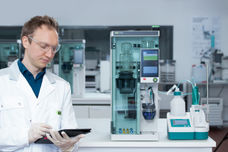
Kjel- / Dist Line by Büchi
Kjel- and Dist Line - steam distillation and Kjeldahl applications
Maximum accuracy and performance for your steam distillation and Kjeldahl applications
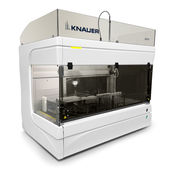
AZURA Purifier + LH 2.1 by KNAUER
Preparative Liquid Chromatography - New platform for more throughput
Save time and improve reproducibility during purification

Get the analytics and lab tech industry in your inbox
By submitting this form you agree that LUMITOS AG will send you the newsletter(s) selected above by email. Your data will not be passed on to third parties. Your data will be stored and processed in accordance with our data protection regulations. LUMITOS may contact you by email for the purpose of advertising or market and opinion surveys. You can revoke your consent at any time without giving reasons to LUMITOS AG, Ernst-Augustin-Str. 2, 12489 Berlin, Germany or by e-mail at revoke@lumitos.com with effect for the future. In addition, each email contains a link to unsubscribe from the corresponding newsletter.
